President Vladimir Putin on Friday praised Russia’s “heroes” fighting in Ukraine on the eve of the second anniversary of the Kremlin’s offensive, with Moscow strengthened by advances against ammunition-starved Ukrainian troops.
Putin’s message came on Russia’s “Defender of the Fatherland Day” patriotic holiday, which has always been an occasion for Kremlin-sponsored military pageantry and patriotism.
This year, the holiday comes with Putin inspired by the capture of the Ukrainian city of Avdiivka and reveling in the US Congress’s blocking of vital military aid to kyiv.
“You are our true national heroes,” Putin said in a video message to troops and veterans.
“We know it is difficult for you and we will do everything possible to help you fulfill the tasks ahead of you,” Putin said, adding that Moscow’s weapons production has “multiplied.”
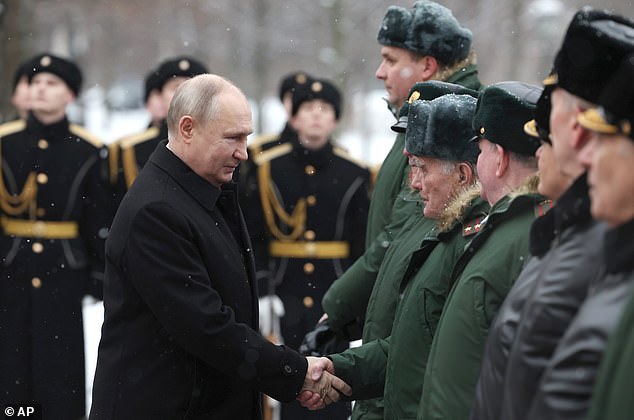
Vladimir Putin has called his troops “heroes” after two years fighting his war against Ukraine.
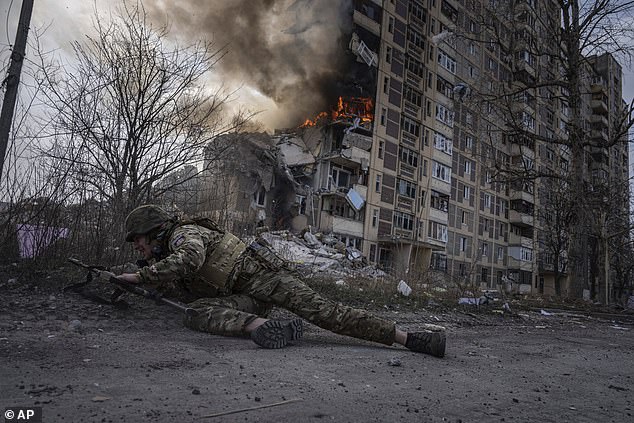

The city of Avdiivka fell to Moscow last week after months of bloody battles.
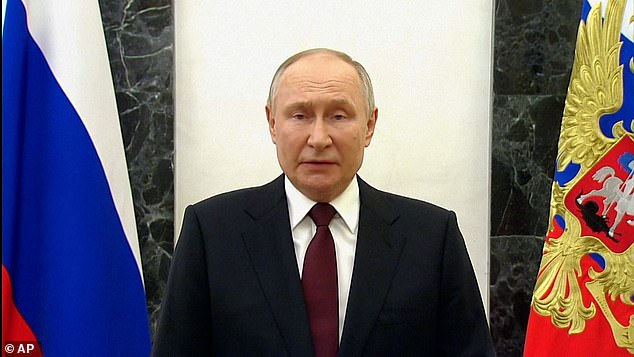

Putin’s message came on Russia’s “Defender of the Fatherland Day” patriotic holiday
Putin has spent the last few days flying in bomber planes, presenting medals to troops and touting a “turning point” in Ukraine.
He has mocked Ukraine’s “chaotic flight” from Avdiivka, which fell to Moscow last week after months of bloody battles.
Putin has also been bolstered at home, ahead of an election that is sure to extend his long rule: A massive crackdown has all but crushed dissent and the Russian leader’s main opponent, Alexei Navalny, is dead.
Meanwhile, Ukraine has been weakened by the blocking of American aid, its failed counteroffensive and worsening ammunition shortages.
President Volodymyr Zelensky has acknowledged an “extremely difficult” situation on the front.
Two years of fighting against a larger, richer army have taken their toll on Ukraine’s forces.
“It’s extremely hard,” Ukrainian infantryman Oleksiy told AFP in eastern Ukraine, covered in mud after returning from the trenches.
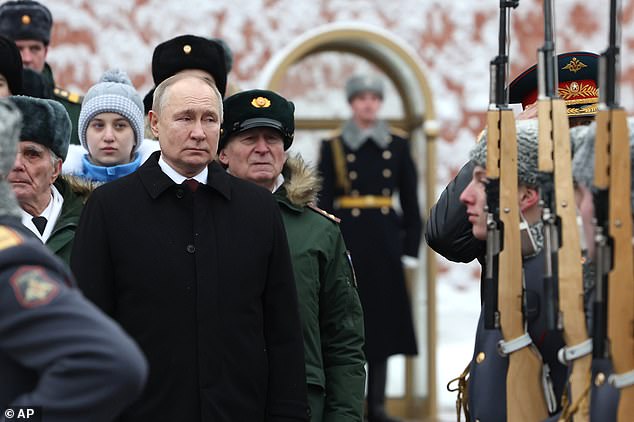

Vladimir Putin participates in the wreath-laying ceremony at the Tomb of the Unknown Soldier
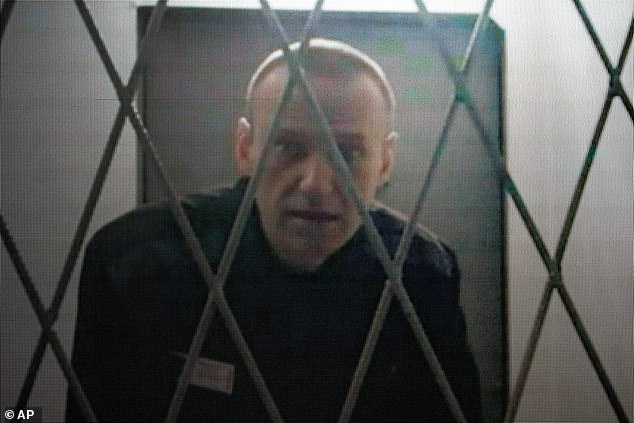

Now that opposition leader Alexei Navalny is dead, nothing stands in the way of Putin’s re-election
‘We don’t have weapons like the ones they have. You know, they have factories for production, what about us? We pray for weapons. “That’s just the way it is,” the 32-year-old said.
In Moscow, Putin laid flowers at the Tomb of the Unknown Soldier outside the Kremlin walls in a ceremony attended by veterans and Russian Defense Minister Sergei Shoigu.
The head of Russia’s Orthodox Church, a key Putin ally and supporter of the offensive, sanctified it once again.
In a letter to Putin, Patriarch Kirill said: “Today we glorify the feat of the soldiers fighting heroically on the borders of Russia, defending its sovereignty and independence.”
Russia has banned all criticism of its campaign, punishing thousands of people for denouncing the offensive, with repression comparable to late Soviet levels.
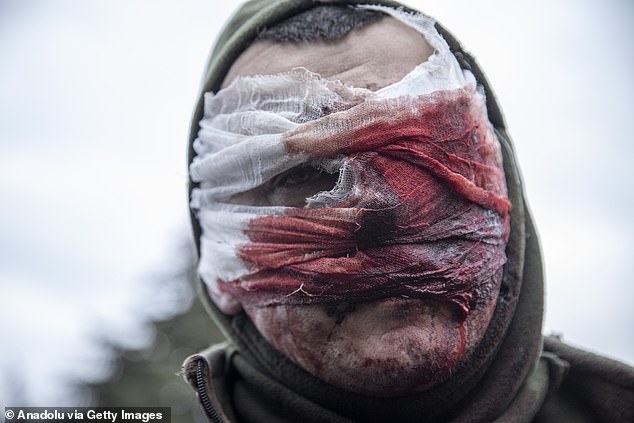

It took several months for Putin’s army to capture the city, causing enormous bloodshed.
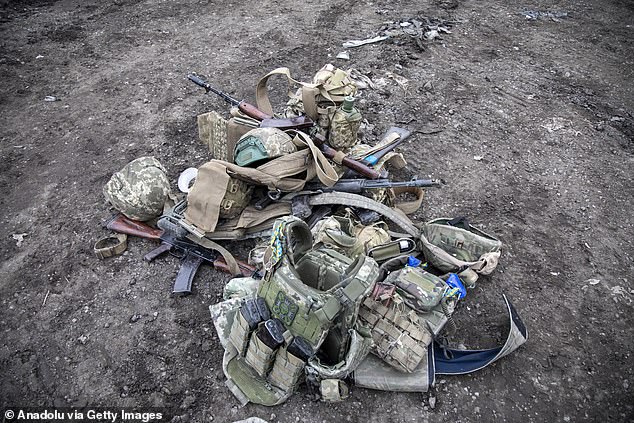

When the Ukrainian forces were forced to evacuate, the military elements were left abandoned on the ground.
The United States will announce new sanctions on Moscow on Friday over the death last week of Putin’s opponent Navalny in an Arctic prison. His body has not yet been returned to his family.
The UN Security Council will also meet on Friday, marking two years of the conflict that has cost tens of thousands of lives.
In Ukraine, foreign dignitaries began arriving to mark the anniversary of the Moscow attack, which has killed thousands of civilians, in addition to a huge number of military deaths.
Denmark’s Prime Minister Mette Frederiksen arrived in the western city of Lviv on Friday, Zelensky said.
U.S. Senator Chuck Schumer also arrived in the city, near the Polish border.
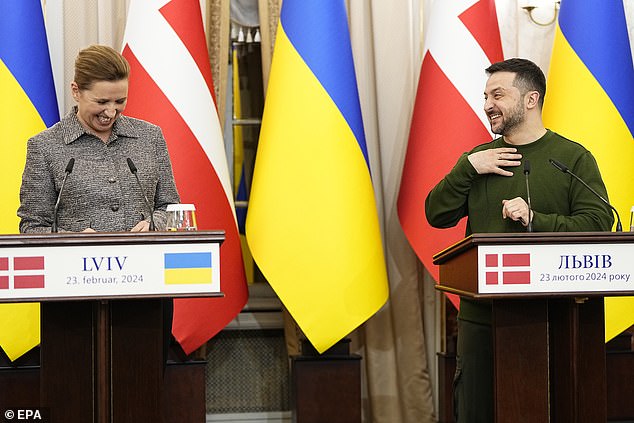

Denmark’s Prime Minister Mette Frederiksen arrived in the western city of Lviv on Friday.
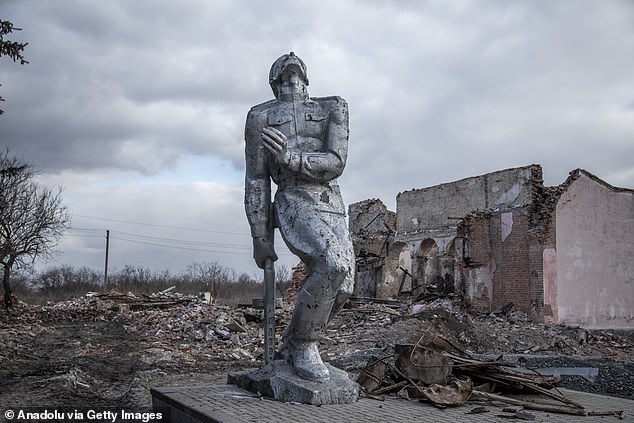

A statue of a soldier among the ruins of Avdiivka which has now been taken by Russia
The Democrat said on social media that he wanted to “show the Ukrainian people that the United States supports them” and “learn about the weapons Ukraine vitally needs.”
Despite recent setbacks, Zelensky has remained defiant.
kyiv has gained confidence from continued successes in the Black Sea, where it says it has destroyed a third (25 ships) of the Russian Black Sea fleet.
But its territorial campaign has stalled, and it is there that Moscow seeks to press its advantage and push deeper into Ukraine after the capture of Avdiivka.
kyiv warned on Friday that Russia is stepping up attacks around the new “hot spot” of Maryinka, a town west of the Moscow-controlled stronghold city of Donetsk.
The Ukrainian troops, however, remained determined.
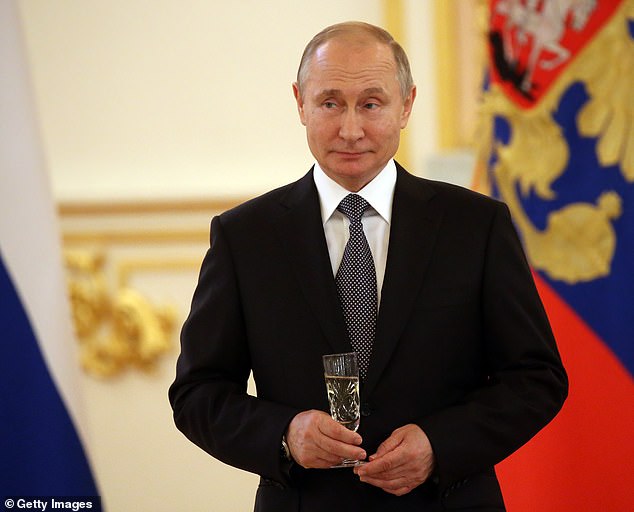

Raising a glass to his army: Vladimir Putin calls his soldiers “heroes” as they drink Avdiivka
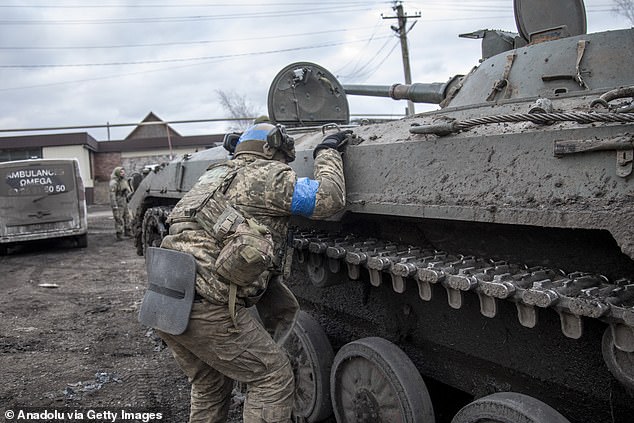

Ukraine’s agrarian campaign has stalled: Moscow seeks to press its advantage
Ukrainian soldier Oleksiy, who was holding backup lines outside Avdiivka, said that while the fall of the industrial center affected morale, troops were ready to keep fighting.
‘Absolutely, of course we were upset. But, even so, no one gets discouraged,” he said, with an AK-47 assault rifle tattooed on his neck.
“If we retreat, they will advance along the entire front line.”
